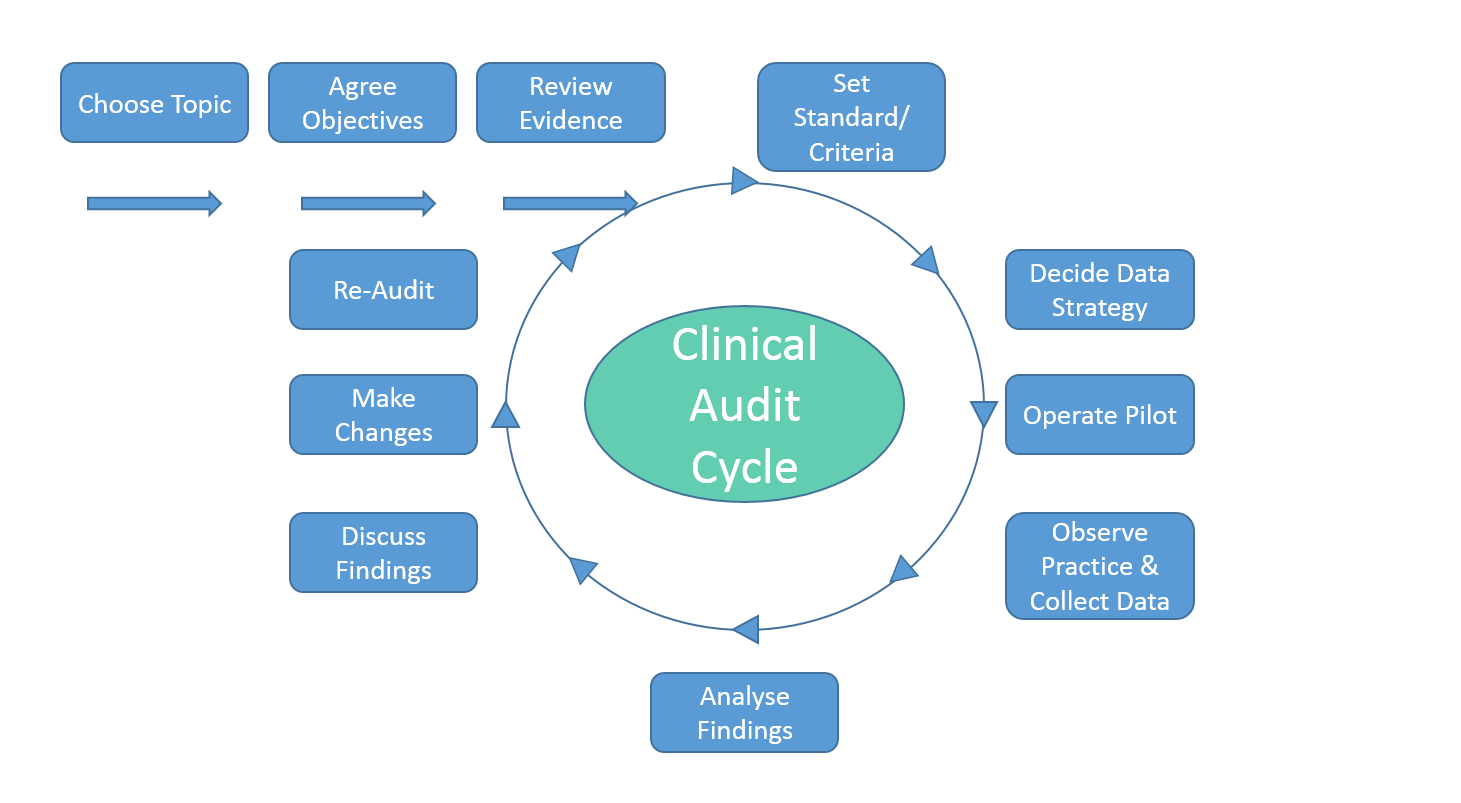Patient information
Understanding clinical audits
A clinical audit is a quality improvement process that aims to enhance patient care and outcomes. It involves systematically reviewing how medical care is delivered against established criteria, identifying areas for improvement, and implementing necessary changes.
This process is often cyclical, meaning that the audited areas are re-evaluated over time. This promotes continuous improvement. By comparing actual practice against evidence-based guidelines, healthcare providers can identify and rectify deficiencies, leading to better patient outcomes and higher quality care.
The clinical audit process

Clinical audits can be carried out in a number of ways typically involving the following steps:
- Choosing the topic: A dedicated team selects a relevant and important area of care to audit.
- Designing the audit: The team sets objectives and selects standards from evidence-based guidelines to evaluate clinical practice.
- Data collection: Patient data is collected either prospectively (as care is delivered) or retrospectively (sometime after the care have been given). The data can be collected manually, through professional questionnaires, or from computerised patient records.
- Data analysis: The audit team analyses the data and evaluates whether the care provided meets the selected standards and/or outcomes are in line with expectations.
- Action plan: The results are shared with appropriate clinical staff and stakeholders and an action plan is created to address any identified deficiencies. This plan outlines what needs to be done, how it will be done, and who will be responsible for implementing these actions.
- Re-audit: The audited area undergoes re-evaluation to ensure that improvements have been made and maintained.
How is patient data used?
Data collected on patients is crucial for clinical audits to evaluate the quality of care provided. Patient data is essential for clinical audits, as it helps evaluate the quality of care delivered. By gathering data from multiple patients, the audit team can assess how current practices align with established standards and identify areas where improvements are needed.
All patient data is handled with strict confidentiality and in accordance with data protection regulations and information governance policies.
Will medical care change because of an audit?
An important aim of clinical audit is to evaluate that care is being delivered safely and effectively. In many situations, an audit shows that care is meeting these requirements, and so changes are not required. Audits can also identify when it is possible to improve the overall quality of care, and this can lead to changes in how care is delivered. These changes are intended to benefit patients by ensuring that care is of a high standard. If an audit identifies areas needing improvement, steps are taken to enhance these aspects of care.
Who manages national clinical audits in the NHS?
The Healthcare Quality Improvement Partnership (HQIP) commissions national clinical audits that are part of the National Clinical Audit and Patient Outcomes Programme (NCAPOP). This programme covers NHS health services in England and Wales.
For more information, visit the HQIP website.
